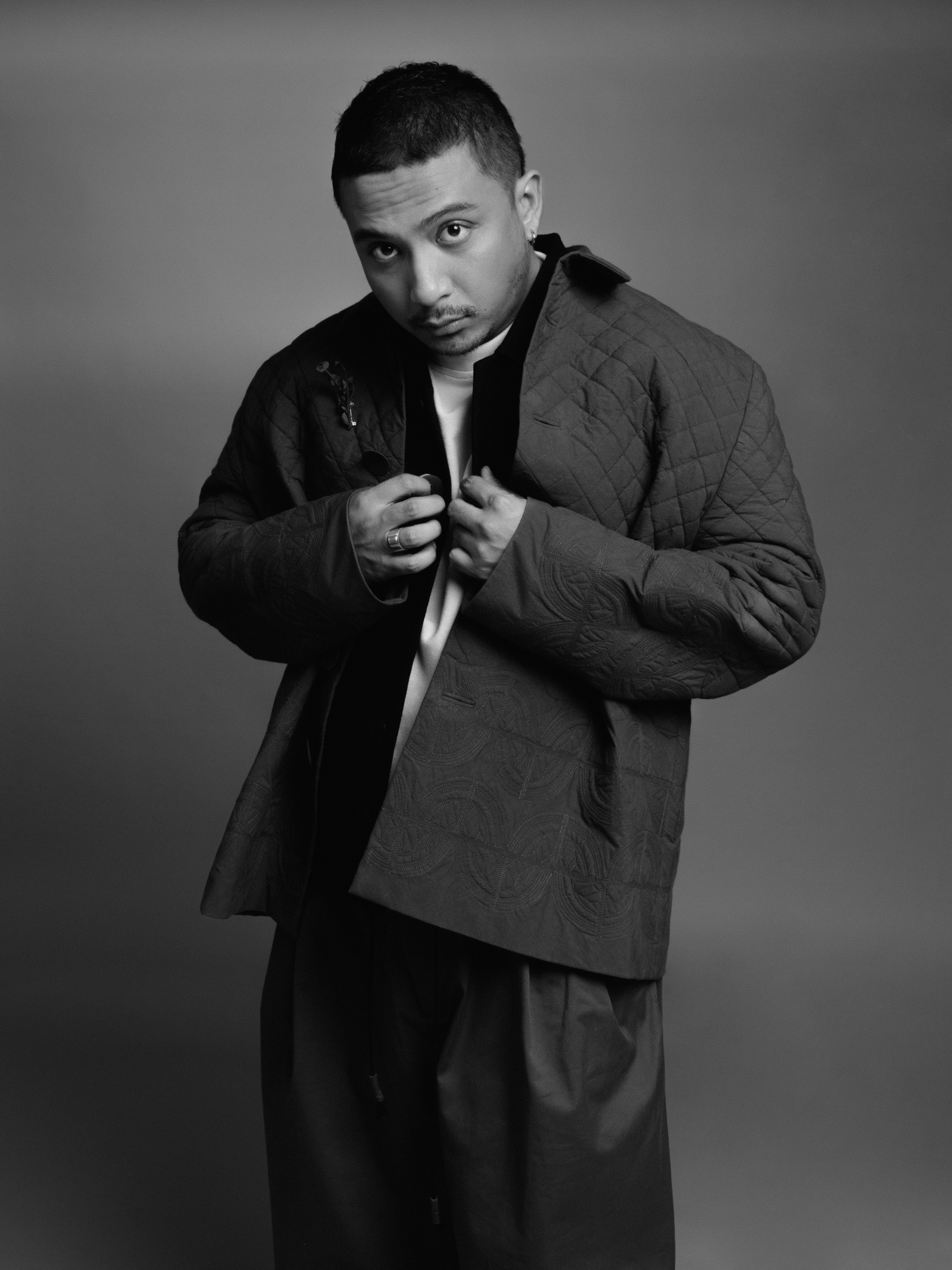Sal Priadi #SAPTOJOEditorial

In the latest edition of #SAPTOJOEditorial, SAPTO DJOJOKARTIKO turns its lens towards the realm of music, tracing the lyrical journey of Sal Priadi, a singer-songwriter whose work resonates with a rare combination of poetry, emotion, and cultural awareness. His songs, layered with introspection and quiet observation, mirror the values and sensibilities that lie at the heart of the house’s philosophy.

Raised in a family where creativity was second nature, Sal’s relationship with music was nurtured by lineage as much as by instinct. His grandfather was a musician, his mother a DJ, and his younger sibling is a producer, making melody and rhythm the undercurrent of daily life. In 2018, his debut single Kultusan marked his arrival on the national stage, earning an AMI Award nomination and setting the tone for a career shaped by deeply human narratives. Two full-length albums later, his work continues to explore the nuances of memory, feeling, and the fleeting moments that define connection.
For Sal, music is more than performance; it is a vessel for documenting life, not only his own but the stories of those around him. His lyrics often emerge from intimate, unhurried observation: the way a glance can hold unspoken truth, the quiet ache of absence, the resilience found in everyday rituals. “There are things you can’t always say aloud,” he reflects, “but you can preserve them in song.”
His creative inspirations extend well beyond the boundaries of music. The painterly abstraction of Nashar, the lyrical mastery of Sapardi Djoko Damono, and the narrative cadence of Nick Cave all find their way into his work. This eclectic tapestry of influences lends each composition a distinct texture, rich with references that bridge worlds.

In 2020, during the visual production of one of his music videos, Sal wore pieces from SAPTO DJOJOKARTIKO, garments that, in his view, did more than complete the look. They carried emotion, shaping the visual language of the song and deepening its sensory impact. “When what you wear has a story,” he shares, “you don’t just put it on — you feel it.”

This sense of meaning extends to his view of nationalism. With deliberate care, he chooses to write primarily in Bahasa Indonesia, honoring the richness and rhythm of his mother tongue. It is a quiet act of cultural preservation, ensuring that his work remains firmly rooted in the identity it seeks to represent, even as it travels beyond borders.

Fashion, to Sal, occupies a similar place as music: both are languages of presence and intention. He is drawn to garments that hold narrative weight, pieces shaped by craftsmanship and imbued with the touch of their maker. Whether in melody or in material, his choices are guided not by spectacle, but by truth.

Through sound and through style, Sal Priadi continues to weave his own archive of human experience, a collection not of objects or accolades, but of moments suspended in lyric, tone, and thread.

